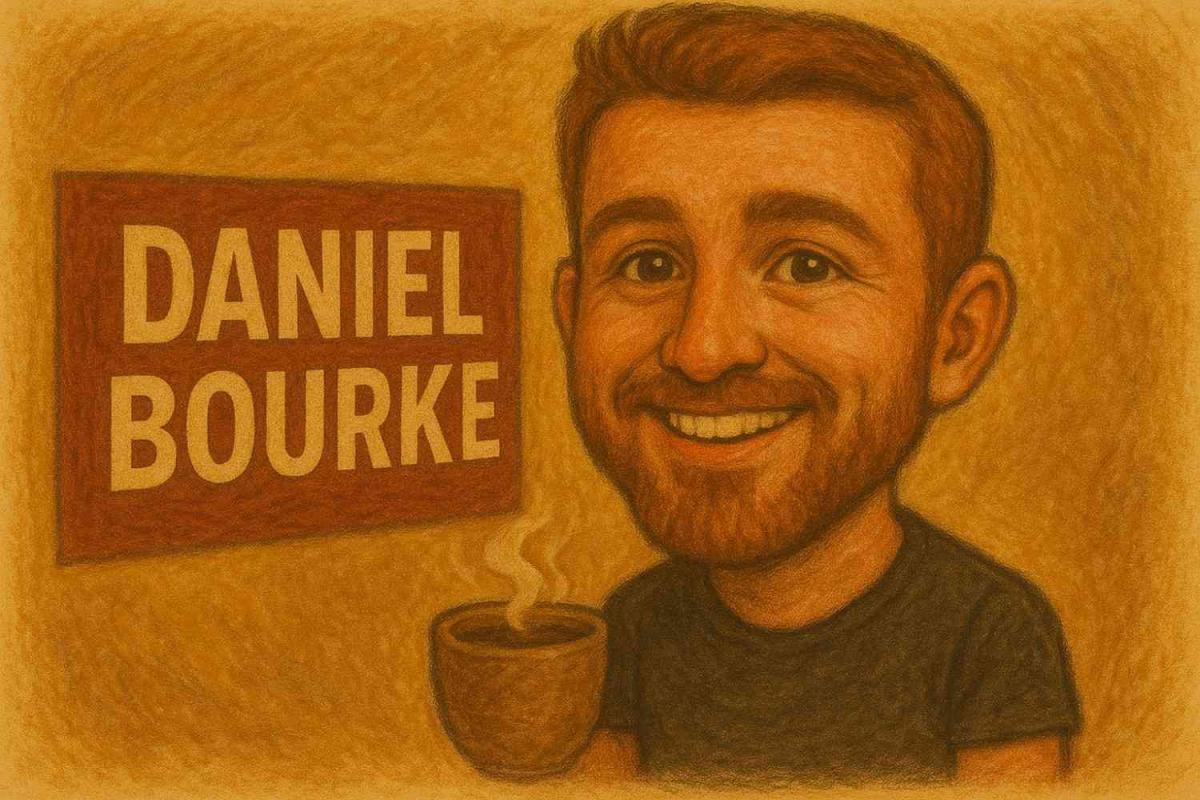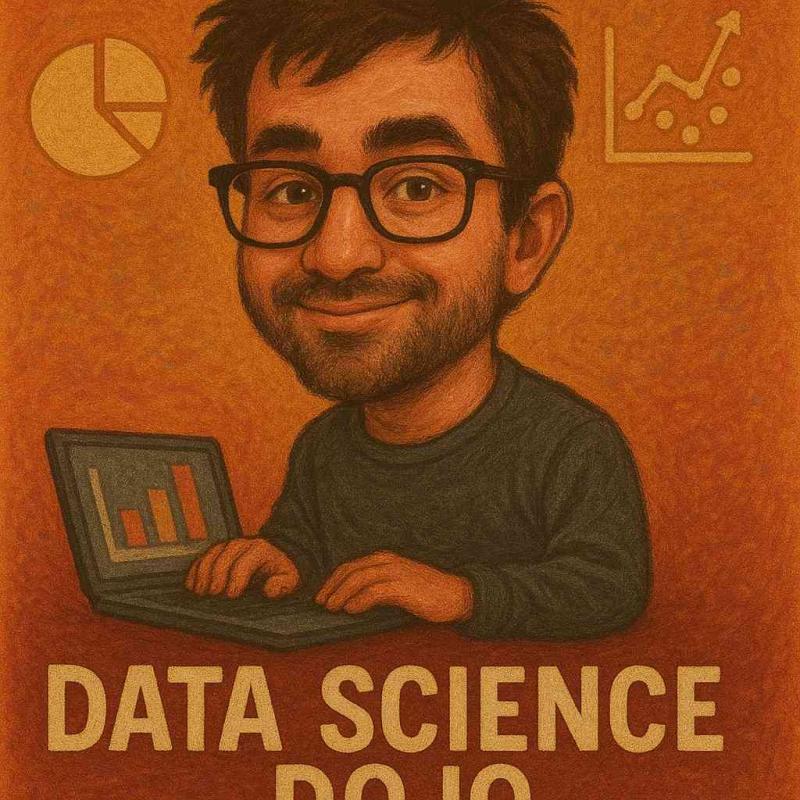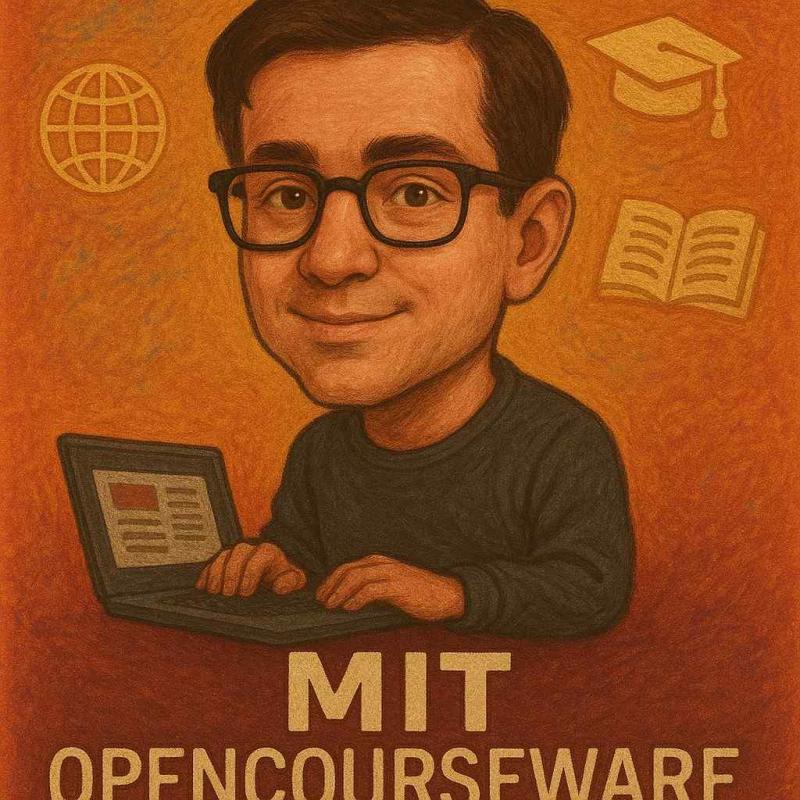Daniel Bourke: The Machine Learning Mentor You Wish You Had in Uni (But Way Cooler)
If you’ve ever googled something like “how to get started with machine learning without losing your mind”, chances are you’ve stumbled across Daniel Bourke. And if you haven’t yet, buckle up. Because this guy? He’s a refreshing slap in the face to the world of dense textbooks and robotic AI lectures.
He makes machine learning, deep learning, and data science actually feel doable. Like you’re sitting next to a smart friend who explains things clearly—without sounding like they’re trying to impress a conference room full of PhDs.
Let’s talk about why Daniel Bourke might be your next best binge-watch... and no, I’m not exaggerating.
Who Is Daniel Bourke, Really?
Okay, first off—Daniel didn’t start as some professor in a lab coat. He’s self-taught. Yep. Just a regular dude who got curious about AI, documented the whole journey on YouTube, and now teaches ML with the clarity of someone who remembers how confusing it all was in the beginning.
He studied nutrition science originally (go figure), but somewhere along the way, the machine learning bug bit him hard. And instead of going full academic, he did something kinda wild—he learned in public.
And trust me, it shows.
Why His Content Feels Like a Breath of Fresh Air
Daniel’s tutorials are the kind where you nod along and think, “Wait... I get this.” Which—if you’ve ever cried in front of a scikit-learn documentation page—feels miraculous.
Here’s what makes his stuff stand out:
-
Real talk: No buzzword salad. No over-complication. He breaks down complex ideas with simple metaphors and practical examples.
-
Code-first approach: You won’t spend 30 minutes hearing theory before you touch a line of code. Daniel teaches by building.
-
Approachable pace: You don’t need to be a genius. You just need curiosity and maybe a bit of caffeine.
-
Open mindset: He often says “I don’t know everything”—which is oddly comforting in a field that feels impossible to keep up with.
Plus, he uses emojis in code comments sometimes. Which, I’ll admit, I judged at first—but now I find it weirdly delightful. 😊
The YouTube Channel: A Goldmine of Learning
Daniel’s YouTube channel is the heart of his universe. It’s where he shares tutorials, project walkthroughs, learning tips, and brutally honest advice about breaking into the AI field.
Some of his most popular (and helpful) videos include:
1. How I’d Learn Machine Learning (If I Could Start Over)
This one’s basically a cheat sheet for the rest of us. He maps out what he’d do differently, what resources matter, and what’s just noise.
Spoiler alert: It’s not about collecting certificates. It’s about building stuff.
2. Zero to Mastery Deep Learning Project
In this series, Daniel walks you through building your own neural network, end-to-end, with PyTorch. No magic. No hand-waving. Just gritty, glorious code.
You learn:
-
Data preprocessing (yes, even the boring parts)
-
Model creation and training
-
Debugging when things break (they will)
It’s one of the few tutorials where the “how” and “why” feel equally balanced.
3. From ML Noob to Getting Paid
Ever feel like you’re drowning in information but still don’t know how to get a job? Daniel’s career-focused content is brutally honest—without crushing your spirit.
He talks:
-
Portfolios > degrees
-
Show, don’t tell (build projects!)
-
Impostor syndrome (yup, he had it too)
His Blog and GitHub: Clean, Practical, and Generous
Daniel isn’t just a YouTuber. He blogs too—when he’s not learning, coding, or running laps around Brisbane. His blog posts are short, punchy, and opinionated (in a good way). Think “tech diary meets motivational kick.”
A few gems worth reading:
-
“Why You Should Learn in Public”
-
“How I Built a Deep Learning Model with 93% Accuracy (Then Broke It)”
-
“Learning Machine Learning with 10 Hours a Week”
Also, his GitHub? Chef’s kiss. Well-documented repos. Clear structure. It’s like peeking inside a high-functioning dev’s brain—and not getting overwhelmed.
Bourke’s Philosophy: Build. Share. Repeat.
Daniel preaches (but not in an annoying way) the value of building real-world projects over just collecting courses. He encourages people to:
-
Pick a topic (e.g., NLP, computer vision)
-
Build something tiny
-
Share it online
-
Repeat
And that’s the magic. You learn by doing, not by lurking.
IMO, that’s what sets him apart from most creators in this space. He teaches with his hands, not just his mouth.
Who Should Follow Daniel Bourke?
Honestly? Pretty much anyone interested in machine learning, deep learning, or data science.
But especially:
-
Beginners who want a no-fluff, hands-on intro to ML
-
Career switchers from non-technical backgrounds
-
Developers who want to level up with AI tools
-
People who learn by building and breaking stuff
Whether you’re writing your first Python loop or deploying models in production, you’ll find something valuable here.
Some Light Critique (Gotta Keep It Honest)
No one’s perfect. Not even Daniel Bourke (though he’s annoyingly close).
Here’s a minor heads-up:
-
His tutorials lean code-heavy, so if you’re craving pure theory, you might need to supplement.
-
He sometimes jumps between tools (hello, PyTorch, TensorFlow, Hugging Face...), which can feel a bit chaotic to the very-new-newbies.
That said, it’s also part of his charm. He shows how real developers work—testing tools, tinkering, occasionally breaking everything, then fixing it with coffee and persistence.
Final Thoughts: The Machine Learning Guide We Deserve
Daniel Bourke is what happens when you combine curiosity, humility, and a love for teaching. His content is packed with substance, free from ego, and wildly encouraging.
He’s like the anti-gatekeeper of AI.
So if you’re tired of reading 50-page PDFs and pretending you understood them (been there), check out Daniel’s world. Watch a video. Clone a repo. Break something and fix it. Then maybe do it again.
Just don’t blame me if you end up binge-watching PyTorch tutorials at 2 a.m. It’s part of the process. 😅
Your move. Build something. Share it. And maybe tag Daniel while you're at it—he'll probably cheer you on.



